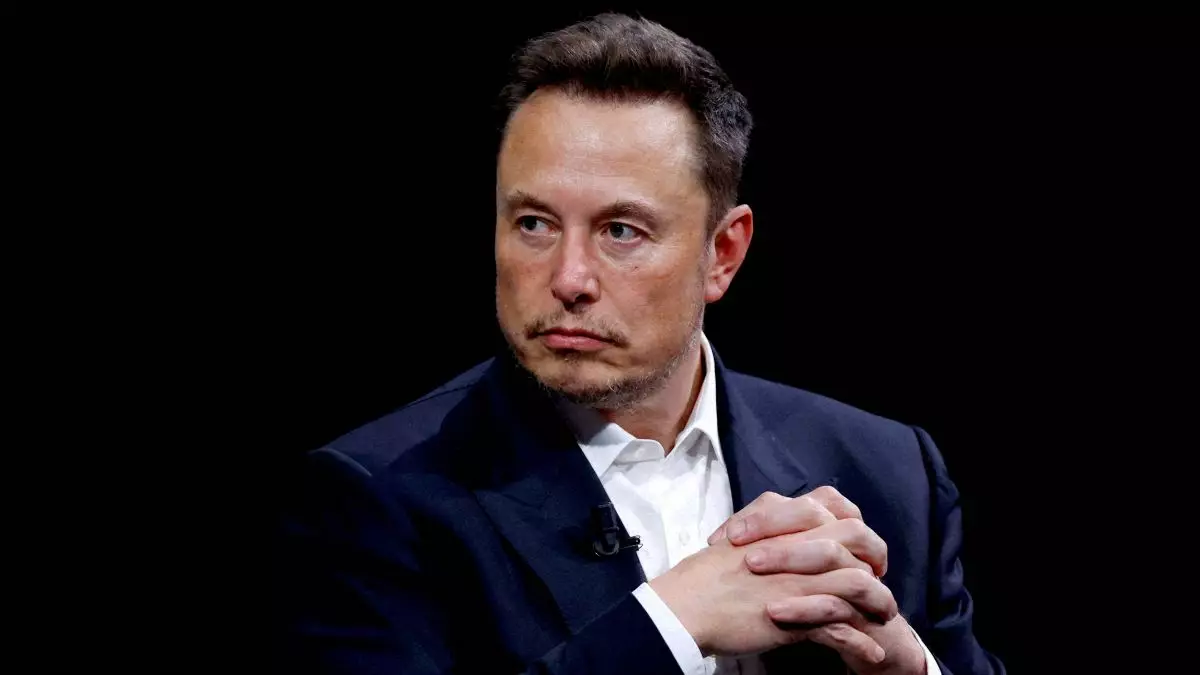The ongoing saga between Elon Musk and the U.S. Securities and Exchange Commission (SEC) has taken a significant turn, as the regulator announced plans to seek sanctions against the billionaire after he failed to adhere to a court order to testify regarding his acquisition of Twitter. This article delves into the implications of Musk’s actions, the regulatory framework surrounding securities disclosures, and the broader context of his tumultuous relationship with the SEC.
The SEC’s recent filing in San Francisco federal court is a stark reminder of the seriousness with which regulatory bodies view compliance with legal orders. The SEC’s intent to impose sanctions stems from Musk’s decision to inform the agency just three hours before a scheduled court-mandated testimony that he would not be attending. This late notification raised eyebrows; notably, the scheduled date coincided with his commitments to oversee a SpaceX rocket launch in Florida, raising questions about the legitimacy of his excuse.
Musk, who is notoriously known for managing multiple high-profile ventures including Tesla and SpaceX, has been urged by the SEC to demonstrate respect for the legal process. The SEC’s claim that Musk was “surely aware” of the launch schedule points to a potentially egregious oversight on his part. SEC lawyer Robin Andrews articulated the agency’s stance by accusing Musk of employing tactics that undermine the regulatory framework designed to ensure corporate accountability. This friction illustrates the fine line that exists between business obligations and legal responsibilities.
At the heart of this issue lies the SEC’s inquiry into whether Musk breached securities laws during his acquisition of Twitter. Musk initiated his Twitter stock accumulation in early 2022 but delayed disclosing his ownership stake, only revealing he held 9.2% of the company—well beyond the legally mandated threshold of 5%. This raises foundational questions about transparency and investor trust within the realm of publicly traded companies.
Musk’s argument—that he misunderstood SEC disclosure requirements—does little to alleviate concerns from stakeholders who felt blindsided during this period of acquisition. Following public disclosures, investors and Twitter shareholders criticized Musk for waiting at least ten days in excess of the required timeline to announce his holdings. Such delays not only violate regulatory norms but potentially distort the market dynamics surrounding share prices and investor sentiment.
Strained Relations and Litigative History
Musk’s history with the SEC has been contentious, marked by previous legal confrontations that culminated in a settlement involving a $20 million fine. The unwelcome attention Musk has faced from the SEC can often be traced to his provocative tweets and statements, including his infamous 2018 post about taking Tesla private, which the SEC claimed was misleading.
This ongoing discord has prompted Musk to accuse the SEC of harassment, a point he reinforced following several subpoenas. The adversarial relationship has further tarnished what might otherwise be collaborative avenues for addressing corporate governance issues. The litigation cloud hanging over Musk’s operations raises critical questions about accountability in leadership, especially for a figure of his stature in the technology and automotive sectors.
With Musk’s testimony now rescheduled for October 3, the SEC remains vigilant, voicing skepticism about the likelihood of his attendance and readiness. Legal analysts speculate that continued defiance could invite harsher sanctions, which may affect Musk’s companies and tarnish their reputations. The potential consequences extend beyond mere legal penalties; they reflect on shareholder confidence and market behavior.
Musk’s response to the SEC’s motions—characterizing them as “drastic” and pointing to safety considerations during the SpaceX launch—reveals the complexity of his situation. As the world watches closely, the unfolding drama between Musk and the SEC serves as a pivotal case study on the intersection of innovation, regulation, and ethical business practices in the modern investment landscape.
This ongoing dispute not only illustrates Elon Musk’s unique challenges as a trailblazing entrepreneur but also underscores the critical importance of regulatory compliance in maintaining investor trust and safeguarding the integrity of the financial markets. It remains to be seen how Musk will navigate these challenges while continuing to drive forward his ambitious ventures.

Leave a Reply